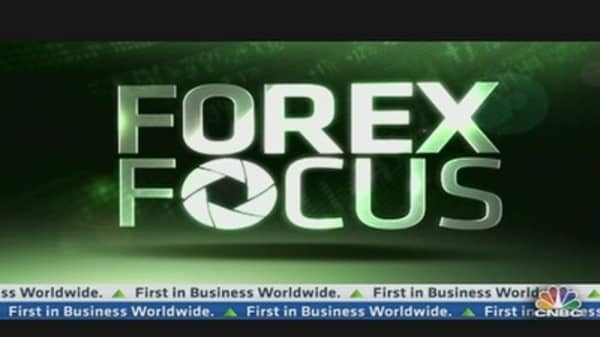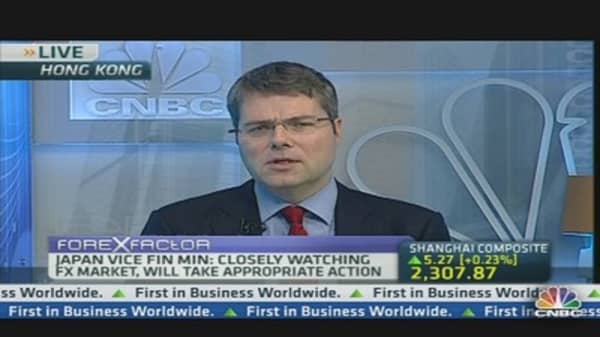Japan's new government certainly isn't mincing its words about wanting a weaker yen.
Deputy Economy Minister Yasutoshi Nishimura said on Thursday the yen's fall was not over and a move to 100 per dollar would not be a concern – a comment that sent the yen tumbling 2 percent overnight with the currency a 2-1/2 year low at about 90.65 to the greenback on Friday.
Weakness in the yen, while good for Japan's exporters and an economy in recession, means stronger currencies elsewhere, with Tokyo now expected to face increased resistance to any efforts to engineer a weaker currency.
"Currency wars are very real and will continue to grow in 2013 as the yen continues to weaken," Michael Woolfolk, senior currency strategist at BNY Mellon in New York told CNBC Asia's "Squawk Box" on Friday. "Expect a lot of official dialogue over the next year with regards to yen weakness."
(Read More: What Would Really Spark a Currency War?)
It's a view that billionaire financier George Soros shares. A potential currency war is brewing, he told CNBC on Thursday.
In fact, rhetoric globally regarding currencies has started to pick up: German Bundesbank President Jens Weidmann warned this week of the "politicization of exchange rates," German Chancellor Angela Merkel on Thursday expressed concern about currency manipulation and South Korea's finance minister said on Wednesday Seoul would fight the rapid appreciation of the won, which is hurting exporters.
"One issue that is sure to arise is complaints from Asian nations, which will be seeing currency appreciation against the yen and that cross-yen movement is going to be very painful for them. So nations like Korea, Taiwan, also Southeast Asia, could step-up currency intervention, grow their foreign exchange reserves to keep their currencies from strengthening," said Woolfolk.
The yen has weakened 14 percent against the South Korean won, the U.S. dollar and the Australian dollar since mid-November. It has depreciated about 11 percent against the Taiwan dollar and some 18 percent against the euro.
The backdrop to the yen's sharp and rapid weakening is a new government led by Prime Minister Shinzo Abe that came to power in elections in December determined to kick start Japan's economy by pushing the central bank into a more aggressive monetary policy, something that implies a weaker yen.
Japan's central bank obliged this week by adopting a 2 percent inflation target and making an open-ended pledge to pump trillions of yen into the economy via asset purchases from 2014.
(Read More: Japan May Stop Dragging on Global Growth Finally)






